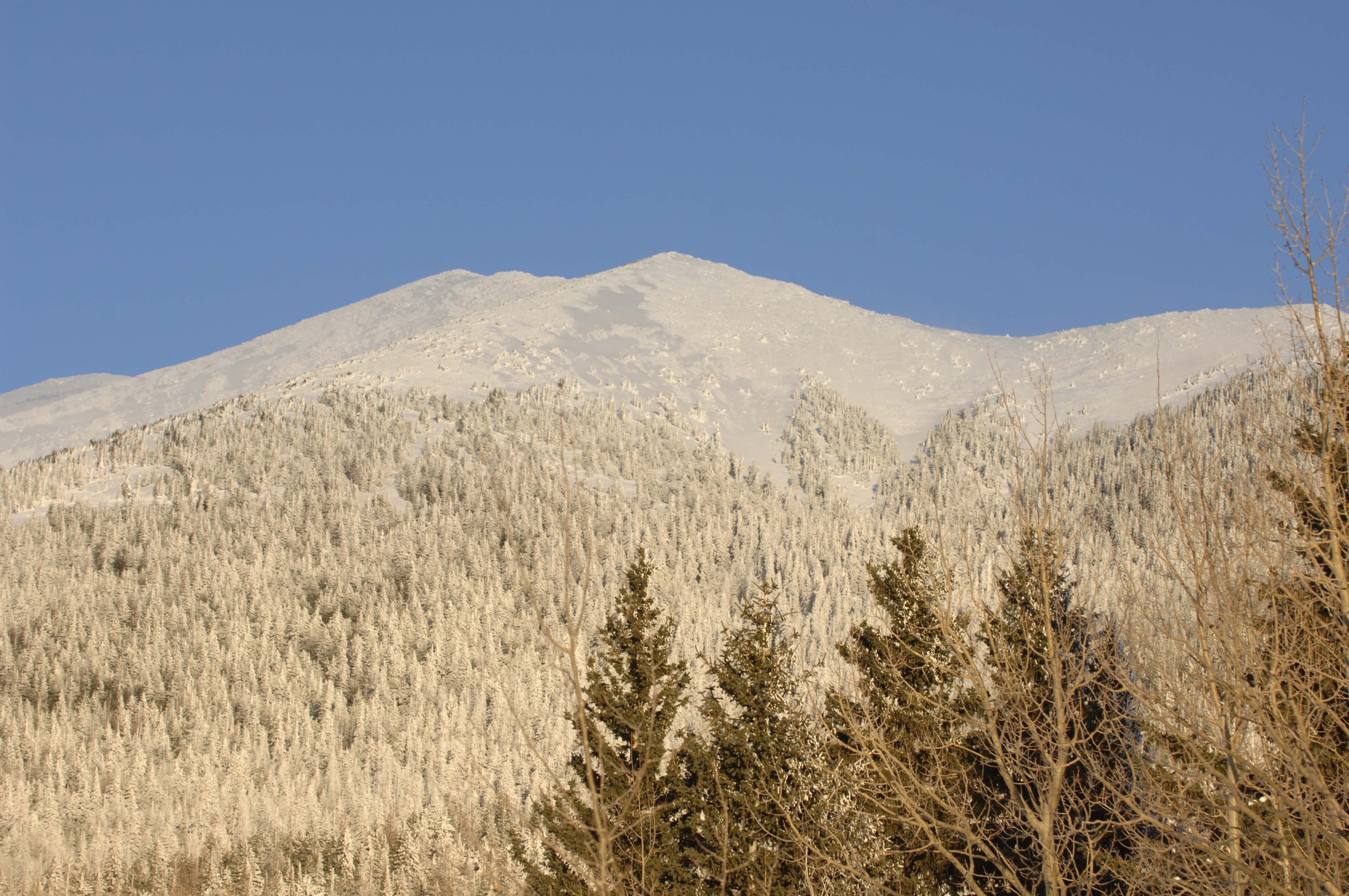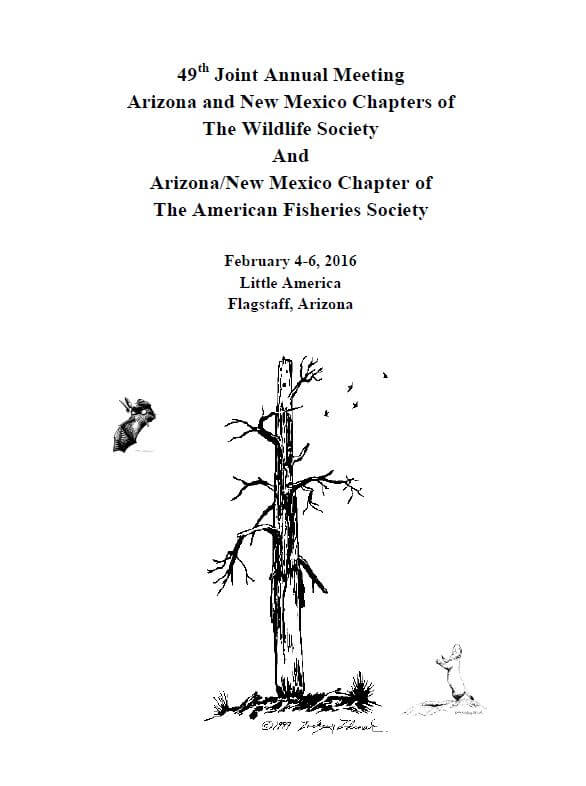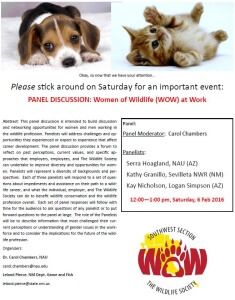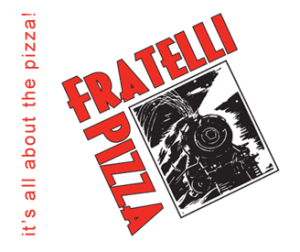
- This event has passed.
The 49th Joint Annual Meeting
February 4, 2016 - February 6, 2016

2016 JAM Program: (Click on Image Below to Download)
Plenary Session:
Who Will Manage the Future of Our Public Lands?
When: Friday February 5th, 2016, 8:00AM – 11:30 AM
Price: $25 at the door (without registering for the Joint Annual Meeting)
| Time | Topic |
|---|---|
| 8:00 AM – 8:10 AM |
Opening Remarks – Carol Chambers Plenary Rules – Jon Hanna |
| 8:10 AM – 8:30 AM |
Brenda Barton, Republican, District 6, House of Representatives. Committee Chair of House Bill 2658 to establish a study committee to look into the transfer of public lands to the state. |
| 8:30 AM – 8:50 AM |
Lisa Atkins, Commissioner of the Arizona State Land Department. |
| 8:50 AM – 9:10 AM |
Mandy Metzger, Coconino County and president-elect of the Arizona County Supervisors Association. |
| 9:10 AM – 9:30 AM |
Steve Hattenbach, Regional Director, Rangeland Management USDA Forest Service Southwestern Region. |
| 9:30 AM – 9:45 AM |
Break |
| 9:45 AM – 10:05 AM |
Cyndi Tuell, Attorney at Law, Public Lands issues. |
| 10:05 AM – 10:25 AM |
Todd Leahy, Director of Conservation, New Mexico Wildlife Federation. |
| 10:25 AM – 10:45 AM |
Jennifer Fielder, Montana State Senator and American Lands Council representative. |
| 10:45 AM – 11:30 AM |
Open Panel, Moderator – Jon Hanna |
Plenary Speaker Bios:
Brenda Barton, Republican, District 6, House of Representatives
Born in Safford, Arizona, Representative Barton is a fifth generation native of rural eastern Arizona. By the mid-1990s, public events drew her into political activism and she became an elected officer of People for the West, a land rights group. Representative Barton is a veteran of the Sage-Brush Rebellion that swept the Western Lands States from the 1970s into the 1990s. Her top issues are building a strong state economy coupled with the conservation of our quality of life in Arizona. She is the chairperson for House Bill 2658 that established the Transfer of Federal Lands Study Committee and also the Chairman of Agriculture, Water and Lands Committee.
Lisa Atkins, Commissioner of the Arizona State Land Department
Lisa A. Atkins was appointed by Governor Douglas A. Ducey to serve as Commissioner of the Arizona State Land Department on June 15, 2015. As an Arizona native, Lisa combines a well-rounded understanding of the State with more than 40 years of work in the federal and State legislative and policy arenas. While serving for more than twenty-three years as Chief of Staff to Congressman Bob Stump (R-AZ), Lisa worked closely with residents, citizens’ groups, associations and State and local governments on a wide and diverse set of issues of importance to Arizona, particularly focusing on land, water and military issues. After her tenure with Congressman Stump, Lisa served as the Executive Director of the County Supervisors Association of Arizona (CSA), representing the elected County Supervisors in Arizona on policy and budget matters. Prior to joining the Governor’s Administration in June 2015, Lisa served for eleven years as the Vice President for Public Policy for Greater Phoenix Leadership (GPL), a group of the Region’s top business and industry leaders.
Lisa is well respected in the Arizona community for her involvement in a variety of organizations. Among her current community activities, Lisa represents Maricopa County as an elected member of the Board of the Central Arizona Water Conservation District, which is responsible for operating, maintaining, repaying and managing the Central Arizona Project. She also serves as an advisory member of the statewide Governor’s Military Affairs Commission, which is the permanent body to monitor and make recommendations to the Governor and Legislature on executive, legislative and federal actions necessary to sustain and grow Arizona’s network of military installations, training and testing ranges, and associated airspace. She served as the Co-Chair of the Commission from its inception in 2004 until assuming her role as State Land Commissioner. Mrs. Atkins graduated from the University of Arizona. Lisa and her husband John live in Phoenix.
Mandy Metzger, District 4 Supervisor Coconino County and President of the Arizona County Supervisors Association
Mandy Metzger was elected this year by her Arizona colleagues as President of the County Supervisors Association (CSA). Supervisor Metzger will lead the organization’s executive board for 2016, helping to develop plans and implement strategies for strengthening Arizona counties in state policymaking. Supervisor Metzger Chairs the Coconino Plateau Water Advisory Council and was appointed by Department of Interior Secretary Sally Jewell to the Bureau of Land Management Resource Advisory Committee. “I firmly believe that by forging strong partnerships with elected officials at all levels of government, we can work together to find solutions to strengthen service to our constituents.” Mandy served as natural resource and public lands policy advisor for a former United States Senator in Washington D.C. Her family has ranched in Northern Arizona since the late 1800’s.
Steve Hattenbach, Regional Director, Rangeland Management & Acting Regional Director, Wildlife, Fish & Rare Plants USDA Forest Service Southwestern Region
Mr. Hattenbach has worked in the Southwest since 1997, on a wide variety of environmental and natural resource issues. He holds an undergraduate in Anthropology and History, a Master of Public Administration with a concentration in Natural Resource Management, and a Juris Doctorate. His past experience includes 18 years of legal counsel for State local and Federal governments involving environmental and natural resource issues, and several management positions with the US Forest Service Southwestern Region. He is currently the Regional Director for Rangeland Management and Wildlife Management for the Southwestern Region, which spans Arizona, New Mexico, Oklahoma, and Texas, and which manages over 20 million acres of National; Forest System lands on 11 National Forests and 3 National Grasslands.
Cyndi Tuell, Attorney at Law and Southwest Conservation Advocate
Cyndi Tuell has worked as an attorney and passionate conservation advocate since September 2007, focusing on federal public lands management issues in New Mexico and Arizona. Ms. Tuell works with national and local conservation partners in both states to protect the habitat of native species and ensure good land management policies are implemented to protect natural resources and quiet recreation opportunities. Ms. Tuell holds a bachelor of science in Ecology and Evolutionary Biology and a law degree from the University of Arizona James E. Rogers College of Law. While in law school, Ms. Tuell worked for the Sonoran Institute researching conservation issues related to State Trust Lands and co-authored two publications on State Trust Lands in the West. Since October 2013, Ms. Tuell has been working as a consultant to various non-profit conservation organizations with an emphasis on borderlands natural resource protection.
Todd Leahy, Director of Conservation, New Mexico Wildlife Federation
Todd has lived all over the country, but learned to hunt and fish at an early age. He attended Oklahoma State University, and earned a doctorate in American Indian history. As a teacher, his research focused on conflicts about land and resource rights, ownership and use. A desire to advocate on these issues led him to law school and a degree in Land Use and Environmental law, which he put into practice while working for the Missouri Department of Natural Resources. Todd has hiked and camped much of the American West. Normally a rifleman, Todd is currently trying his hand at bow hunting. He also enjoys fishing and is excited for the day he can introduce his infant son to the rivers of the Southwest.
Jennifer Fielder, Montana State Senator District 7 and American Lands Council representative
Jennifer’s decision to step forward to serve in the State Legislature in 2012 was rooted in prayer and a deep reverence for the principles of life, liberty, and property which made this nation great. Jennifer believes it’s not too late to get America back on the right track, but it will only happen if enough good people become informed and active in government processes. Her professional experience includes extensive work in both the public and private sectors – providing her with valuable insights from both perspectives. Jennifer is married to Paul, a retired wildlife biologist and active outdoors man. They live near Thompson Falls, MT where they enjoy living close to the land — gardening, fire wooding, hunting, fishing, trapping, and managing their timber land for optimal forest health and wildlife habitat.
Contact Jon Hanna at moremuledeer@gmail.com for questions
Register here:
https://www.regonline.com/JAM2016_AZ-NMChapters_AFS_TWS
Second Call for Papers
We are now accepting abstracts, FIRST CALL abstracts to be submitted by January 22, 2016
The Program Committee for the 2016 JAM invites abstracts for contributed oral presentations and posters. The program will include a plenary session, contributed papers and a poster session on a wide range of fisheries and wildlife related topics. Presentations may include completed projects and works in progress.
We strongly encourage students to attend and are particularly interested in student presentations. There will be several awards for best papers and posters. The AZ/NM Chapter of the American Fisheries Society will present a “Best Student Paper” and “Best Student Poster” award for presenting papers/posters in the fisheries field. The AZ and NM Chapters of The Wildlife Society will present a “Best Student Paper” and “Best Student Poster” award for presenting papers/posters in the wildlife field.
All fisheries and wildlife student posters and fisheries student oral presentations will automatically be considered for awards. *However, see the attached Best Wildlife Student Paper announcement for information on applying for the best student oral presentation competition in wildlife.*
INSTRUCTIONS FOR ORAL PRESENTATION AND POSTER ABSTRACTS
Speakers will be given 20 minutes for their presentation (15-minute presentation and 5 minutes for questions). A laptop PC and digital projector will be provided for Power Point presentations. Please inquire about other audio-visual aids if necessary.
Oral presentation and poster abstract format:
List all authors using first and last names, their affiliation, addresses, and e-mail addresses. When choosing the title, be brief but descriptive and avoid using acronyms or scientific names in the title unless the common name is not widely known. Please indicate if you are a student (undergraduate or graduate) at the end of the abstract (see example below). Abstracts are restricted to 250 words and should summarize the findings. Please follow the format from the example below so that program chairs can focus on processing abstracts rather than making edits. Abstracts with grammatical errors or incorrect formatting will be returned to the authors for correction prior to acceptance.
Poster Size and Display:
Please limit your poster size to 32″x 44″ which can be either portrait or landscape; each presenter will have a 4×4 foot space for their poster, which will provide a place to hang the poster and other information such as handouts and category headings. Presenters are required to assemble and disassemble their own poster. You must provide tacks or push pins.
Poster Presenters should attend the Poster Session at the meeting to answer questions. Breaks and socials will be organized around the Posters to encourage discussion between attendees and poster presenters. Poster submissions from students will automatically be considered for the Student Poster Competition.
Please email your abstracts to the appropriate Program Chair below by December 20, 2015:
- Oral presentation for fisheries: John Caldwell, john.caldwell@state.nm.us
- Oral presentations for wildlife: Melanie Culver, melanieculver59@gmail.com
- Poster presentations for fisheries: John Caldwell, john.caldwell@state.nm.us
- Poster presentations for wildlife: Brett Montgomery, melanieculver59@gmail.com
All presenters will receive an e-mail confirmation of their abstract submission within one week post-submittal, abstract acceptance within two weeks of submission. Notification of the time and place of presentation or poster will be sent in January.
ABSTRACT EXAMPLE
Authors:
James W. Pitman, New Mexico State University, Department of Fish Wildlife and Conservation Ecology, 2980 South Espina, Knox Hall 132, Las Cruces, New Mexico 88003; jwpitman@nmsu.edu
James W. Cain III, U.S. Geological Survey New Mexico Cooperative Fish and Wildlife Research Unit, New Mexico State University, Department of Fish Wildlife and Conservation Ecology, 2980 South Espina, Knox Hall 132, Las Cruces, New Mexico 88033; jwcain@nmsu.edu.
Stewart G. Liley, New Mexico Department of Game and Fish, 1 Wildlife Way, Santa Fe, New Mexico 87507; Stewart.Liley@state.nm.us
Title:
Post-parturition habitat selection by elk calves and adult female elk in New Mexico
Abstract:
Neonatal survival and juvenile recruitment are crucial to maintaining elk (Cervus elaphus) populations, and neonate survival is known to be influenced by many factors, including bed site selection. While neonates select the bed site, they must do so within the larger calf-rearing area selected by the mother. Our objectives were to characterize bed-site selection by calves and calf-rearing area selection by adult females at two spatial scales in areas with different predator assemblages. We captured 107 elk calves and fitted them with ear tag transmitters in the Valle Vidal and Gila National Forest. We found that concealing cover structure and distance to that cover were important in bed site selection of young calves (i.e., <2 weeks of age). Older calves (i.e., 3-10 weeks of age) still selected areas in relation to distance to cover but also preferred areas with higher visibility. When we expanded to the larger spatial scale of calf-rearing habitat selection by the adult female, concealing cover (e.g., rocks, shrubs, logs) and other variables important to the hiding calves were still in the most supported models, but selection was also influenced by forage availability and indices of forage quality. Studies that seek to obtain insight into microhabitat selection of neonates should consider selection by both the neonate and adult female, and changes in selection as neonates age.
**Student
Photo Contest and Art Show
Photo Contest
Cash prizes for first place in the following categories:
- Wild Mammals
- Wild Birds
- Wild Herpetiles
- Wild Fish
- Wild Invertebrates
- Landscape
- Wildlifers “Caught in the Act”
- Best of Show
Photo Contest Rules:
Entries cannot include previous contest winners, nor can photographs of captive animals be used. Photos must be taken by the participant. Color or black and white photographs 5″x7″ to 16″x20″ will be accepted (photos 11’x14″ or less are preferred). Photographs must be mounted on stiff backing and/or matted and must be clearly labeled on the back with the photographer’s name, the category of the entry, address, and telephone number. No glass or frames. Conference participants will judge the Best of Show.
Art Show
Cash prize for Best of Show
Art Show Rules:
Entries can be any two-dimensional artwork ready for hanging (ink, graphite, watercolor, acrylic, etc) with a wildlife/fisheries theme. Due to space limita-tions no work larger than 16″x20″ will be accepted, only the first 10 pieces entered and accepted will be displayed and each partici-pant is limited to one entry on display. En-tries will be judged based on artistic merit and suitability. Please submit a photograph by January 15, 2016 of each entry as an attachment to an e-mail to ckondrat-smith@azgfd.gov.
When you arrive at the meeting with your photo or art: All pieces accepted must be labeled on the back with the artist’s name, address, and telephone number and AZTWS accepts no responsibility for damage to art-work displayed.
On-site registration of entries to be held at the JAM registration table until Friday February 4th until 10am.
Wildlife Student Paper Competition
To enter the competition, students must submit a written summary of their research. To be competitive, these should be final or near final results of the student’s research. The panel of judges will evaluate the written summary of the student’s research (i.e., based on the merits of the research) to determine the top 3 students from each state. These 6 finalists will compete during a special symposium of the meeting on Friday; each student’s presentation will be 15 minutes plus 5 minutes for questions. All 6 finalists selected for the competition will receive a certificate and the top 3 students will receive a certificate and cash award at the awards banquet. Student entrants for the wildlife student paper competition not selected will automatically have their research summaries sent to the abstract selection committee responsible for choosing papers for general sessions during the meeting.
Experience presenting research at professional meetings is an important part of a student’s professional development. Consequently, we strongly encourage all students that are involved with research to present a poster or presentation. We will continue to strive to provide informal peer review of all student presentations. Poster submissions from students will automatically be considered for the Student Poster Competition. Poster presentations will be evaluated and will compete for a separate best poster award.
Benefits:
- Judging will be consistent.
- The stature of the best wildlife student presentation award will be elevated.
- Symposium attendees will be able to see all of the “best papers”.
- All six finalists will gain better recognition.
-
How to Apply:
- Eligibility: All students working towards undergraduate or graduate degrees, or professionals who have graduated within the preceding 12 months of the JAM (i.e., after February 2015). The student must be first author on the research. The student must be a member of either the Arizona Chapter or New Mexico Chapter of The Wildlife Society. Group undergraduate or graduate class projects cannot be considered original research attributable to a single author, and are not allowable for this competition.
- Prepare your application in a word processor using a standard font no smaller than 11pt, single spacing, and at least 1 inch margins. Save the completed application as an unsecured pdf with the file name “TWS Student Competition Application—[Last Name]”.
- Application is not to exceed TWO single-spaced pages including tables, figures, and literature citations. Include the following information:
- Student name, institutional address, email address
- Advisor’s name; list of coauthors in order of recognition
- Summary of research including title, a brief introduction, methods, results, conclusions, and significance or management implications. Limit to 250 words.
- Attach the pdf of your application to an email addressed to Melanie Bucci (mebucci@email.arizona.edu) with a subject line “TWS Student Competition Application—[Last Name]”.
- The deadline for application is Wednesday 20 December 5:00 pm MST.
Associated Meetings
- Intermountain West Joint Venture State
Conservation Partnership
Date: Wednesday, February 03, 2016 8:00 AM – 5:00 PM (Arizona Time)
Location: Little America Flagstaff – Aspen Room - Bat Working Group Meeting
Date: Thursday, February 04, 2016 1:00 PM – 3:00 PM (Arizona Time)
Location: Little America Flagstaff – Ballroom B
Business Meetings
- AZ-NM AFS Chapter Business
Date: Thursday, February 04, 2016 4:30 PM – 6:00 PM (Arizona Time)
Location: Little America Flagstaff – Spruce Room - AZ TWS Business Meeting
Date: Thursday, February 04, 2016 4:30 PM – 6:00 PM (Arizona Time)
Location: Little America Flagstaff – Ballroom A - NM TWS Business Meeting
Date: Thursday, February 04, 2016 4:30 PM – 6:00 PM (Arizona Time)
Location: Little America Flagstaff – Aspen Room
Workshops
- Interview & Resume Building: This is tailored to wildlife students and young professionals, and is aimed at building resume and interviewing skills.
Date: Thursday, February 04, 2016 8:00 AM – 12:00 PM (Arizona Time)
Location: Little America Flagstaff – Ballroom C
Price: Free - Interview & Resume Building: Mock Interview
Date: Thursday, February 04, 2016 1:00 PM – 4:00 PM (Arizona Time)
Location: Little America Flagstaff – Ballroom C
Price: Free - Wildlife Conservation Legislation & Advocacy: Arizona legislative processes relating to conservation issues. Reconciling management policy with will also be given to legislative advocacy limitations for wildlife professionals.
Date: Thursday, February 04, 2016 1:00 PM – 4:00 PM (Arizona Time)
Location: Little America Flagstaff – Spruce Room
Price: Free - New Technologies in Wildlife/Fisheries Management – AM: Smartphone/Tablet apps being used for wildlife field data collection.
Date: Thursday, February 04, 2016 8:00 AM – 12:00 PM (Arizona Time)
Location: Little America Flagstaff – Aspen Room
Price: $25.00 Student, $40.00 Professional - New Technologies in Wildlife/Fisheries Management – PM: Covering some of the current and potential uses for drones in wildlife research and management. This was previously shown as a repeat of the Smartphone/Tablet app workshop
Date: Thursday, February 04, 2016 1:00 PM – 4:00 PM (Arizona Time)
Location: Little America Flagstaff – Aspen Room
Price: $25.00 Student, $40.00 Professional - Becoming a Compelling Communicator for Conservation: Knowing your audience; organizing the message; how to write, how to speak, how to construct an effective powerpoint slide, how to lead a public meeting.
Date: Thursday, February 04, 2016 8:00 AM – 12:00 PM (Arizona Time)
Location: Little America Flagstaff – Spruce Room
Price: $35.00 Student, $50.00 Professional - Incorporating Climate Change Data: A survey of on-line tools for accessing climate datasets (both historical and projected) and go through a workflow for processing the data.
Date: Thursday, February 04, 2016 8:00 AM – 12:00 PM (Arizona Time)
Location: AGFD Offices, Flagstaff
Price: $25.00 Student, $40.00 Professional - Venomous Reptile Handling: Instruction and hands-on experience in basic handling of venomous reptiles.
Date: Thursday, February 04, 2016 1:00 PM – 4:00 PM (Arizona Time)
Location: AGFD Offices, Flagstaff
Price: $35.00 Student, $50.00 Professional - Piscicide Applications: Safety, label requirements, Standard Operating Procedures, and case histories for piscicide applications. It will meet the annual CEU requirement for Arizona and New Mexico aquatic certified applicators.
Date: Thursday, February 04, 2016 9:00 AM – 4:00 PM (Arizona Time)
Location: Little America Flagstaff – Ballroom A
Price: $30.00 Student, $30.00 Professional
Panel Discussions
- Women of Wildlife (WOW) at Work
Date: Saturday, February 06, 2016 12:00 PM – 1:00 PM (Arizona Time)
Location: Little America Flagstaff – Ballroom A
Click on the image below to download the PDF
Local Info
Restaurants
Click on the image below to view a list local restaurants!



